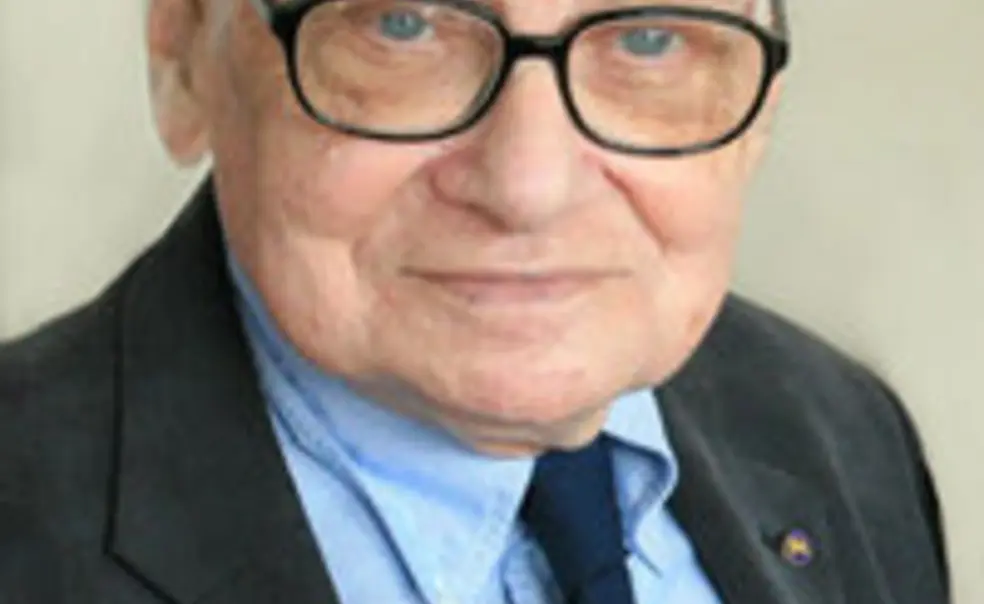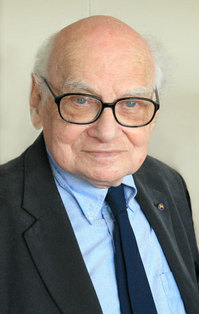Hilferty '82, Babbitt *92 live on in music documentary
The late composer and professor Milton Babbitt *92 is the subject of a documentary film created by Robert Hilferty '82 and completed by composer Laura Karpman. (Photo: Denise Applewhite/Office of Communications)
By Brian Jones ’82
Robert Hilferty ’82, a freelance writer, filmmaker, and AIDS activist best known for his 1989 short documentary “Stop the Church,” died on July 24, 2009. According to his companion, Fabio Toblini, Hilferty committed suicide while suffering from complications of a head injury he’d endured several months earlier. At the time of his death, he left his magnum opus unfinished: a full-length documentary about avant-garde composer Milton Babbitt *92, his former teacher and a longtime member of the Princeton music faculty.
But the story doesn’t end there. Toblini asked composer Laura Karpman, a former Babbitt student (at Juilliard) who had seen Hilferty’s work in progress and had discussed with him the changes he intended to make, if she would be willing to complete the film. Karpman agreed — and posted the result on NPR Music a few days after Babbitt’s death, in January 2011. (A YouTube version of the 64-minute film can also be seen below.)
Babbitt: Portrait of a Serial Composer provides a sampling of Babbitt’s atonal and serial-music compositions, including “Three Compositions for Piano” (1947), “Partitions” (1964), “The Joy of More Sextets” (1986), and “None but the Lonely Flute” (1991). The film contains interviews with the composer, his wife, Sylvia, and many former colleagues and students, including Princeton music professor Paul Lansky *73, retired professor J. K. Randall *58, professor emeritus Peter Westergaard *56, composer and lyricist Stephen Sondheim, concert pianist Robert Taub ’77, and jazz guitarist Stanley Jordan ’81.
The sound quality of some interviews is poor, and the credits are sketchy. But the story Hilferty set out to tell is all there. The film provides unique and insightful perspectives on a noted composer, influential theorist, and beloved teacher — the “family dinner” with Babbitt, his wife, and a gaggle of former students in a Chinese restaurant is especially touching. NPR Music described the film as “a quirky, loving look at a man regarded by many as a composer of ‘difficult’ music.” New Yorker music critic Alex Ross, writing in his personal blog, called it “a heartfelt and revealing piece of work.”
Brian Jones ’82 went to high school with Robert Hilferty and roomed with him their first two years at Princeton. He now lives in San Francisco and works as a freelance copy editor, proofreader, and fact-checker.
[youtube https://www.youtube.com/watch?v=sf_Zfpq3gqk?rel=0&w=600&h=338]













No responses yet